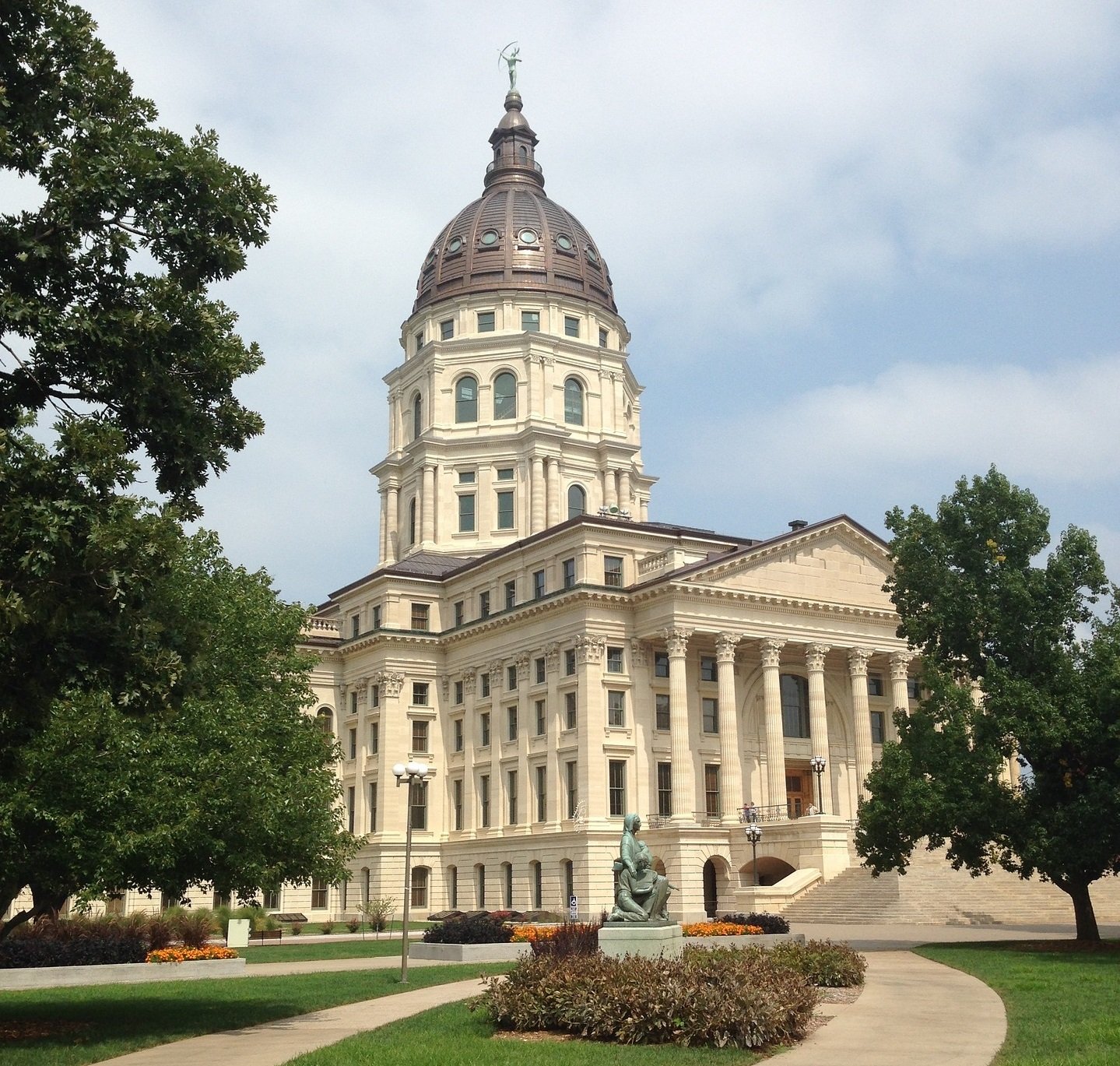(CN) — A judge in Wyandotte County struck down Kansas’ congressional map Monday, finding it would unconstitutionally dilute the voting power of minority voters.
The 209-page ruling from Judge Bill Klapper is the first from a Kansas state court to weigh in on a congressional redistricting map. The decision is likely to be appealed to the Kansas Supreme Court, where the majority of justices are Democratic appointees who may agree with Klapper’s findings that the Republican-controlled Legislature intentionally and effectively gerrymandered the congressional boundaries.
The ruling — which includes quotes from Buddha, the rock band Kansas and legendary U.S. Circuit Judge Learned Hand of the Second Circuit — consolidated multiple suits from Democratic voters and the American Civil Liberties Union. The suits claimed that the new maps unfairly split the Kansas City metropolitan area and its minority voters to endanger the electoral prospects of the state’s lone Democratic representative on Capitol Hill, Rep. Sharice Davids. They further questioned the decision to place Lawrence, a comparatively liberal college town, into a vast rural district practically guaranteed elect a Republican.
Over the course of a weeklong bench trial, multiple redistricting experts testified the maps were gerrymandered to favor Republicans — testimony Klapper found compelling in reaching his decision.
Klapper found the map injures the plaintiffs, which included residents of Lawrence and voters of color from the Kansas City area, “by diluting their votes and making it less likely that they will be able to elect candidates of their choice.”
Citing the expert testimony that the new congressional districts were “unlikely to perform for minority voters,” Klapper said the map unconstitutionally hurts Black and Latino voters by depriving them of full voting power and burdening them with “the stigmatizing effects of being assigned to districts based on their membership in minority racial groups.”
Klapper rejected arguments from the Kansas Attorney General’s office that the U.S. Constitution bars state courts from reviewing congressional redistricting. Republican legislatures across the country have suggested that they have sole power to redistrict under the Elections Clause of the Constitution without oversight from state courts.
“Defendants’ interpretation of the Elections Clause would dismantle settled principles of federalism and fundamentally upend election administration in Kansas,” Klapper wrote, citing U.S. Supreme Court precedent.
Rather, Klapper found he had the authority to decide the case and evaluate whether the maps complied with the Kansas Constitution’s provisions enshrining equal protection, voting rights and free speech.
In addition to graphs and charts illustrating the discriminatory impact of the congressional district lines, Klapper’s ruling included an image of Republican legislators staring at their phones during a listening sessions, a traditional effort in Kansas to gather public input on redistricting. Noting the lack of advance notice, inconvenient timing of the listening sessions and inattentiveness of the legislators, Klapper said the listening sessions were a “box-checking exercise, conducted to give the appearance of consistency of past practice after Republican legislators had in fact already decided to enact a gerrymandered congressional map.”
Pointing to expert testimony that showed thousands of simulated redistricting maps that would have resulted in fairer district lines, Klapper said the Kansas Legislature knew of the effects of its map on minority voters and chose to enact the map and override Democratic Gov. Laura Kelly’s veto of it anyway through “an abnormal legislative process.”
The ACLU of Kansas applauded Klapper’s decision, while noting that it was not likely the final resolution of the case.
“We are thankful that Judge Klapper saw this map for what it was — a deliberate attempt to silence the political voices of Democratic and minority Kansans,” said Sharon Brett, the ACLU of Kansas’ legal director, in a statement. “Although we know this case is not over yet, we look forward to settling this issue and securing the rights of our clients in the Kansas Supreme Court.”
The Kansas Supreme Court is likely to hear arguments and decide the case before June 1, which is the candidate filing deadline ahead of the August primary elections. In the meantime, Klapper barred any elections from taking place under the congressional district lines and encouraged the Kansas Legislature to implement new maps as “expeditiously as possible.”
Subscribe to Closing Arguments
Sign up for new weekly newsletter Closing Arguments to get the latest about ongoing trials, major litigation and hot cases and rulings in courthouses around the U.S. and the world.









